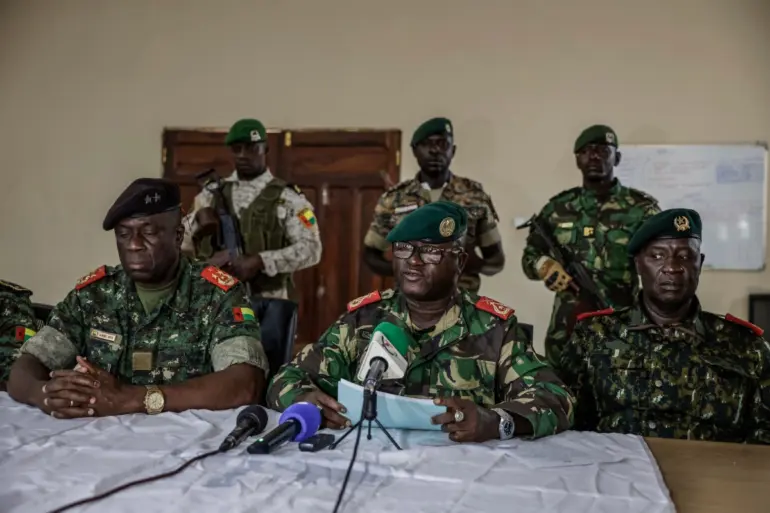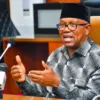Military officers in Guinea-Bissau on Wednesday announced they had taken “total control” of the country, suspending the electoral process and closing all borders, three days after legislative and presidential elections in the impoverished West African nation.
Gunfire was heard earlier in the day near the coup-prone country’s presidential palace as soldiers in uniform seized the main access road leading to the building.
By early afternoon, General Denis N’Canha, head of the presidential military office, declared before journalists that a command structure “composed of all branches of the armed forces” had assumed leadership of the state “until further notice.” He delivered the announcement seated at a table, flanked by heavily armed troops.
President Umaro Sissoco Embalo, widely viewed as the frontrunner in Sunday’s presidential election, was said to be inside a building behind military headquarters “with the chief of staff and the minister of the interior,” a senior officer told AFP on condition of anonymity. It was not immediately clear whether he had been detained.
Both Embalo and opposition candidate Fernando Dias had already claimed victory ahead of the official provisional results expected Thursday.
Guinea-Bissau, one of the poorest countries in the world, has a long history of military interventions, having suffered four coups since independence and multiple additional attempts.
In his statement, N’Canha alleged the military had uncovered a plot to destabilise the country “involving national drug lords,” including a plan to smuggle weapons into the country to undermine constitutional order.
Alongside suspending “the entire electoral process,” he announced a halt to “all media programming” and the imposition of a nationwide curfew.
Guinea-Bissau remains a major transit hub for drug trafficking between Latin America and Europe, a trade enabled by decades of political turmoil.
Earlier on Wednesday, unidentified armed men also attacked the National Electoral Commission (CNE), Commission communications official Abdourahmane Djalo told AFP.
A country in repeated crisis
More than 6,780 security personnel including members of the ECOWAS Stabilisation Force had been deployed for the elections and post-vote period.
The country’s 2019 presidential election triggered a four-month crisis after both leading candidates declared victory. The race pitted Embalo against Domingos Simões Pereira, the nominee of the historic PAIGC party that led Guinea-Bissau to independence from Portugal in 1974.
However, PAIGC and Pereira were excluded from the 2025 polls after the Supreme Court ruled their applications were submitted late.
Embalo dissolved the opposition-dominated parliament in 2023 and has ruled by decree since then. The opposition maintains that excluding PAIGC from the elections amounts to political manipulation and insists Embalo’s mandate expired on February 27, exactly five years after his inauguration.
AFP


